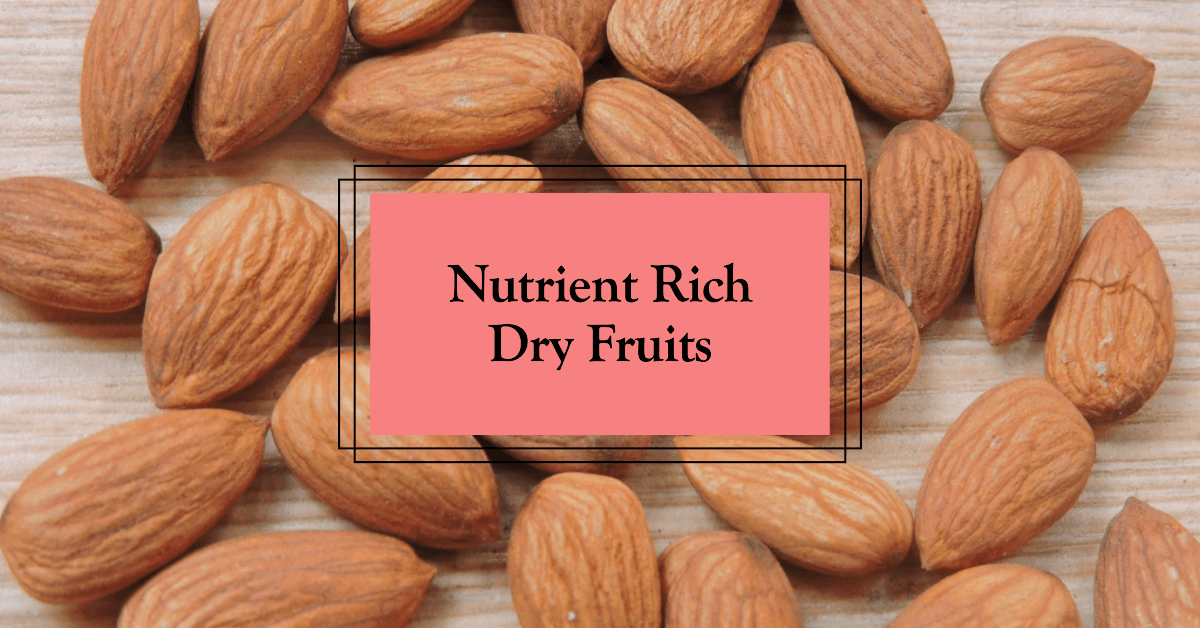In the realm of nutrition and healthy eating, there is an entire category of foods that stands out for their incredible combination of taste and nourishment: dry fruits. These delightful, portable snacks are nature’s way of providing us with an array of essential nutrients. In this article, we will explore the many benefits of dry fruits and introduce you to the top eight dry fruits that deserve a place in your daily diet.
The Wholesome Appeal of Dry Fruits
Dry fruits, also known as dried fruits or nuts, are essentially fresh fruits that have had their water content removed through various drying methods. This dehydration process concentrates the flavors and nutrients, making dry fruits a nutrition powerhouse. They are a popular choice for snacking, adding to dishes, and garnishing desserts. The best part is that they require no refrigeration, making them convenient for on-the-go nutrition.
Nutrient-Rich Powerhouses
Let’s delve into the world of dry fruits and uncover their nutrient-rich profiles. Here are eight of the best dry fruits you should consider incorporating into your diet:
1. Almonds:
Almonds are an excellent source of healthy fats, fiber, and protein.
They are rich in vitamin E, a powerful antioxidant that supports skin health.
Almonds are known to aid in weight management due to their satiety-inducing properties.
2. Walnuts:
Walnuts are high in heart-healthy omega-3 fatty acids.
They are packed with antioxidants, which help combat oxidative stress.
Walnuts may have a positive impact on brain health and cognitive function.
3. Pistachios:
Pistachios are a good source of dietary fiber and protein.
They are lower in calories compared to some other nuts, making them a great option for weight-conscious individuals.
Pistachios are associated with improved heart health and cholesterol levels.
4. Cashews:
Cashews are rich in minerals like copper, magnesium, and phosphorus.
They provide a creamy texture and nutty flavor, making them a versatile ingredient in various dishes.
Cashews may support bone health due to their magnesium content.
5. Raisins:
Raisins are dense in essential nutrients like potassium, iron, and antioxidants.
They are a natural source of energy and provide a quick energy boost.
Raisins are an excellent addition to your breakfast or snacks.
6. Dates:
Dates are a natural sweetener and offer a dose of dietary fiber.
They are rich in potassium and may help regulate blood pressure.
Dates are often used in desserts as a healthy alternative to refined sugar.
7. Prunes:
Prunes are renowned for their digestive benefits due to their high fiber content.
They are an excellent source of vitamins K and A, contributing to bone health and vision.
Prunes may aid in relieving constipation and promoting regularity.
8. Apricots:
Dried apricots are rich in vitamin A, which supports skin, vision, and immune health.
They contain antioxidants like beta-carotene, protecting cells from damage.
Apricots provide a sweet-tart flavor and are an ideal addition to various dishes.
The Versatility of Dry Fruits
One of the key reasons dry fruits are cherished by health-conscious individuals is their versatility. They can be enjoyed on their own as a convenient snack or incorporated into various recipes to enhance both taste and nutrition. Here are some ways you can make the most of dry fruits in your diet:
1. Snacking: Keep a mix of your favorite dry fruits at hand for a quick and nutritious snack. Whether you’re at work, on a hike, or at home, they make for an excellent pick-me-up.
2. Breakfast: Add a handful of dried fruits to your morning cereal, yogurt, or oatmeal for extra flavor and nutrition.
3. Baking: Dry fruits can elevate the taste of baked goods like muffins, cookies, and bread. Raisins, apricots, and dates are commonly used in baking.
4. Salads: Sprinkle some chopped nuts like almonds or walnuts on your salads for a satisfying crunch and added nutrients.
5. Smoothies: Boost the nutrient content of your smoothies by blending in dried fruits like prunes or apricots.
6. Trail Mix: Create your own customized trail mix by combining your preferred dry fruits with seeds and a touch of dark chocolate for a balanced and delicious snack.
The Health Benefits of Dry Fruits
Now that we’ve explored some of the best dry fruits and their uses, let’s take a closer look at the health benefits they offer:
1. Heart Health: Nuts like almonds, walnuts, and pistachios are known for their heart-healthy fats, which can help lower bad cholesterol levels and reduce the risk of heart disease.
2. Weight Management: Despite their calorie density, studies have shown that including nuts in your diet may not lead to weight gain. In fact, they can help you feel full and reduce overall calorie consumption.
3. Digestive Health: Dried fruits like prunes and raisins are well-regarded for their role in promoting regular bowel movements and preventing constipation.
4. Antioxidant Protection: Many dry fruits are packed with antioxidants, which combat free radicals in the body and help reduce oxidative stress.
5. Bone Health: Certain dry fruits contain minerals like magnesium and calcium, which are essential for strong and healthy bones.
Incorporating Dry Fruits into Your Diet
As you seek to make dry fruits a regular part of your diet, consider the following tips:
1. Portion Control: Dry fruits are calorie-dense, so moderation is key. Stick to recommended serving sizes to avoid excess calorie intake.
2. Variety: Mix and match different dry fruits to enjoy a wide range of flavors and nutritional benefits. Diversity in your choices ensures you receive a spectrum of nutrients.
3. Freshness: Store your dry fruits in a cool, dry place to maintain their freshness. Proper storage helps prevent them from becoming stale or rancid.
4. Nut Butter: Consider almond or cashew butter as a delicious alternative to peanut butter. These nut butters are packed with nutrients and can be used in various recipes or simply spread on whole-grain bread.
5. Hydration: Keep in mind that dry fruits have low water content, so it’s essential to stay hydrated when consuming them.
6. Culinary Creativity: Experiment with dry fruits in both savory and sweet dishes. Their natural sweetness can add a unique twist to your meals.
Conclusion: A Flavorful Path to Health
Incorporating dry fruits into your daily diet is a flavorful and practical approach to achieving a balanced and nutrient-rich way of eating. With their diverse nutritional profiles and versatility, dry fruits offer countless options for snacking and culinary creativity. Whether you’re looking to enhance heart health, support bone health, or simply enjoy a delicious and healthy snack, dry fruits are the secret ingredient to a well-rounded diet.
The eight best dry fruits we’ve explored—almonds, walnuts, pistachios, cashews, raisins, dates, prunes, and apricots—are just the beginning of a vast array of choices. As you explore this world of wholesome nutrition, remember to savor the taste and embrace the well-being they bring to your life.
In conclusion, dry fruits are indeed a tasty secret to achieving a balanced and nutrient-rich diet. Their inclusion in your daily routine can bring an array of health benefits and enhance the overall quality of your meals. So, seize the opportunity to enjoy these delicious and nutritious gems and elevate your nutrition to new heights.
Read more:
- Respiratory Syncytial Virus Infection on the Rise
- The pH of Apple Cider Vinegar: Effects and Implications
- Dr sam 7 second morning ritual for constipation
- why is everyone leaving plexus?

Hey, y’all! I’m Akshay!
I’m SO excited you’re here! I’m super passionate about nutrition and specialize in teaching others how to lose weight through healthy, low-carb eating along with Yoga and exercises. Here at Yourfitnessgoal, we believe in quality over quantity and that diet is EVERYTHING when it comes to your health and well-being. In short, we believe in a Fit and healthy lifestyle.

